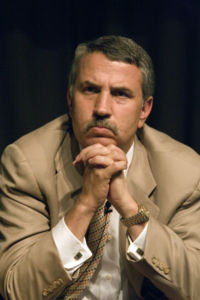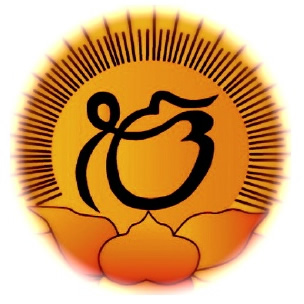This
article is based on the book:
The Lexus and the Olive Tree

By Thomas L. Friedman
The
Big Idea
Pulitzer Prize winning journalist Thomas L. Friedman, writes in
his book, The Lexus and the Olive Tree, about the phenomenon of
globalization and how it has instituted an international system
that has replaced the Cold War. It is a system that has united
the fates of peoples all over the world from Brazilian Indians
to Thai bankers to multinational company executives. Here, Friedman
explains how the democratization of information, technology and
finance has shrunk the world into an over connected community
where billions of dollars are moved from one country to another
with the click of a mouse. He offers not only an astonishingly
all-encompassing perspective on this globalized, Fast World but
also options for countries and companies who wish not only to
survive in it but also to thrive in it. He also explains how in
the globalized world a balance must be maintained between the
Lexus (the aspiration towards material prosperity) and the olive
tree (the ancient forces of culture, race, tradition and community).
Thomas L. Friedman was for some years the foreign affairs columnist
for The New York Times, firing off reports as Beirut correspondent
and later winning a Pulitzer Prize for his book, From Beirut to
Jerusalem. In this new bestseller, Friedman explores an arena
much larger than geopolitics because it encompasses the globe
itself. He ventures to declare that globalization has become the
defining international system in the world today, replacing the
system put in place by the Cold War. In fact, he contrasts the
defining principles that distinguish the Cold War and globalization.
During the Cold War, there were two superpowers, each excluding
the other in its spheres of political and economic influence.
In the globalized world, the defining principle is not exclusion
but integration. The Internet is integrating the entire world.
Friedman says, “That’s why I define globalization
this way: it is the inevitable integration of markets, nation-states
and technologies to a degree never witnessed before – in
a way that is enabling individuals, corporations and nation-states
to reach around the world farther, faster, deeper and cheaper
than ever before and in a way that is enabling the world to reach
into individuals, corporations and nation-states farther, faster,
and deeper, cheaper than ever before.”
Globalization is a spawn of a free market economy. Its defining
measurement is speed. Friedman says the most frequently asked
question in a globalized world is, “How fast is your modem?”
In this system, the defining economists are Joseph Schumpeter,
the Austrian Minister of Finance and Harvard Business School Professor
and Intel Chairman, Andy Grove. Schumpeter wrote in his book,
Capitalism, Socialism and Democracy that the essence of capitalism
is the process of continuously destroying the old and less efficient
product or service and replacing it with new, more efficient ones.
Grove took this notion and popularized the idea that dramatic
industry-transforming innovations are taking place so fast that
only the paranoid, those who are constantly on the watch for these
innovations, can survive. In such a world there are no friends
or enemies, only competitors. Nothing is constant, not your job,
your community or your workplace, which can be threatened almost
overnight by new technological forces beyond your control.
Friedman thinks globalization is built around three balances,
which overlap and affect one another. There is the traditional
balance between nation-states, between nation states and global
markets and between individuals and nation-states. The balance
between nation-states still exists. In explaining the second balance,
between nation-states and global markets, Friedman describes the
millions of investors as the Electronic Herd, who move money around
the world with the click of a mouse and who center their activities
in such financial centers as Wall Street, Hong Kong, London and
Frankfurt, which he calls, “the Supermarkets”. Suharto's
downfall in 1998 in Indonesia is example of the Supermarkets'
clout. They withdrew their support for the Indonesian economy.
In the third balance, the one between individuals and nation-states,
the individual gains so much power that it can influence the decisions
of nation-states ...

